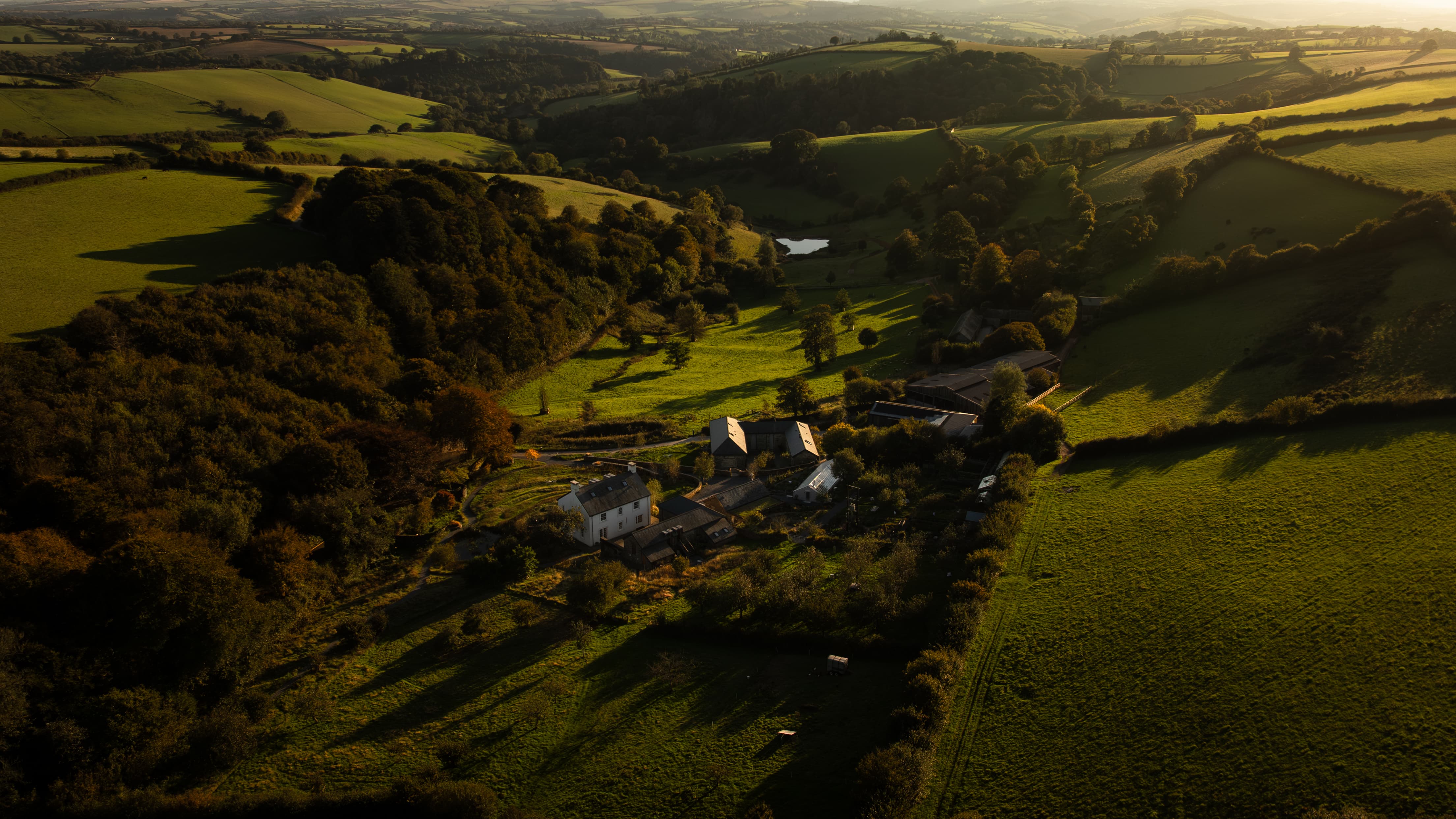
At the heart of Fowlescombe Farm is the land. This is a modern, regenerative farm built on centuries of tradition, where everything we grow, raise and tend to is guided by a simple principle to leave the land better than we found it.
Since 1537, the Fowlescombe estate has nestled into its steep, hidden valley: on the fringes of Dartmoor yet within touching distance of the sea. Ivy blankets the original manor house and woodland gives way to open pasture, forming the backdrop to a farm that feeds not just our retreat kitchen, but a larger vision for the future.

Our animals
At our heart, we are a livestock farm raising native and rare British breeds slowly, with intention and care. Our English Longhorn and Beef Shorthorn cattle graze as registered pedigree herds, while our Manx Loaghtan sheep, a breed once considered at risk of extinction, now thrive here as the country’s largest flock. Tamworth pigs and Boer goats feature too.
Our animals are a core part of the broader ecosystem. Grazing patterns regenerate the soil, plans are slow and deliberate, and high-welfare, low-intervention farming defines all we do.

Regenerative farming methods
The farm has been proudly organic for over 20 years, but we are constantly evolving.
Our fields have shifted to more diverse herbal ley, livestock grazing rotates to nurture the land and build soil resilience, and landscaping is shaped around habitat protection and biodiversity. Our 16 hives of honeybees hum quietly through it all, pollinating as they go.

Kitchen garden
Nurtured by Head Gardener Shelley Hutcheon, the vegetable gardens are an ever-changing palette of British heritage and more unexpected vegetables that make their way from soil-to-plate in a matter of minutes. You’ll often spot chef and gardener in cahoots by the veg beds, planning plates based on what is ripe and ready.
Much like our approach to livestock farming, a commitment to soil health and biodiversity guides everything the garden team do. Wildflowers are planted among the beds to maximise productivity in a chemical-free system, while a complex composting programme maintains the richness of the soil’s nutrients. We grow for longer term good, as much as for short term taste.